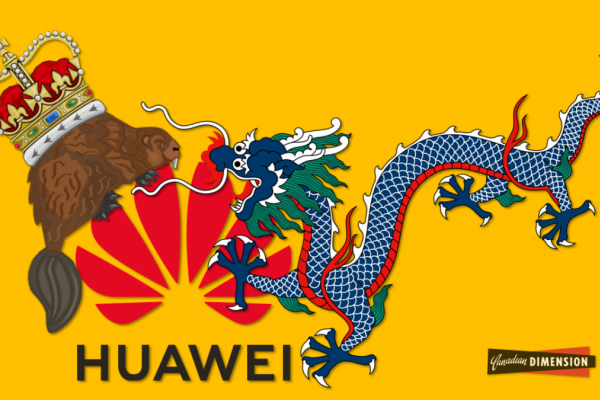-
Canada, China, and our common futures
Today, the world faces a terrible pandemic, the deepening effects of climate change, and an increasing danger of global war. We are concerned about Xinjiang and welcome ongoing investigations to determine what is happening and what might be done. But we should align ourselves with emancipatory goals, and not fall into the trap of reviving a declining, imperial ‘West’ against the rest.
-

Biden is playing an apocalyptic game of chicken with China
Chinese and American leaders are now playing a game of chicken that couldn’t be more dangerous for both countries and the planet. Isn’t it time for the new Biden administration and its Chinese opposite to grasp more clearly and deeply that their hostile behaviors and decisions could have unforeseeable and catastrophic consequences?
-
Land grabs for rare earth metals continue outside the South American Lithium Triangle
Mongolia has long been one of Canada’s closest partners in Asia as a source of strategic metals and minerals, while occupying a fulcrum point between Southeast Asia, Russia and the Middle East. Yet, little light has been shed on the bleak implications of the increasing demand for lithium, and other strategic resources found across Central Asia that are essential to the energy transition.
-

Why is Canada still silent on India’s colonization of Kashmir?
The colonization of Kashmir has been unfolding for more than half a century, marking a direct assault on local culture and identity, the rapid expropriation of land, heightened economic marginalization, and the accelerated forces of settler-colonialism. We must insist that Canada take leadership to pressure the Indian government and push for the realization of self-determination for the people of Kashmir.
-

China, the Canadian left, and countering state capitalist apologia
We must learn to resist China’s dispossession and discrimination against Uighurs and other ethnic minorities as part and parcel of a global movement against racial subjugation, colonialism, police brutality, surveillance, and incarceration. Only then will we be able to realize that working-class interests transcend borders, regardless of what the elites in our respective countries keep telling us.
-

It’s time for Canada to restore relations with China
The arrest of Huawei executive Meng Wanzhou was a colossal blunder by the Trudeau government, executed at the request of the now almost universally discredited Trump administration, which blatantly admitted that she was being held hostage as a bargaining chip in the former president’s trade war with China. Canada should release Meng and chart a new course for relations with China—before it’s too late.
-

How China is building a non-imperialist model of international development
China presents its Belt and Road Initiative as a way to address global deficits of development and has called for an international community with a shared future, while some of its critics see these initiatives as a challenge to a Western-dominated liberal world order. But the Chinese model suggests a new, anti-imperialist model of international governance may well be taking shape.
-

Why is the Guardian promoting more Pentagon propaganda?
Recent reporting by the Guardian reinforces the false (and dangerous) impression that the United States is threatened by Chinese and Russian expansionism and that the Pentagon is justified in adopting an even more aggressive posture toward Chinese naval forces in the South China Sea. With liberal ‘journalism’ such as this, who needs US government propaganda?
-

Why the Trump administration’s extradition request against Meng Wanzhou is a farce
The case of Huawei executive Meng Wanzhou has generated a mountain of press coverage, but precious little of it—including John Ivison’s National Post op-ed—exhibits a meaningful understanding of Canada’s unjust extradition regime. What’s more, there are strong grounds to believe that the United States government’s allegations against Meng are political in nature, and meant to disguise ulterior geopolitical motives.
-

US fearmongering on China not rooted in facts, but racism
Racist fears about China have existed for more than a century in the United States. ‘Yellow Peril’ emerged as a mechanism to control and exploit migrant Chinese workers fleeing from the devastation that the West’s Opium Wars imposed on China. Today, this racism has manifested in tandem with contemporary forms of anti-communism to demonize China in mainstream politics and media.





